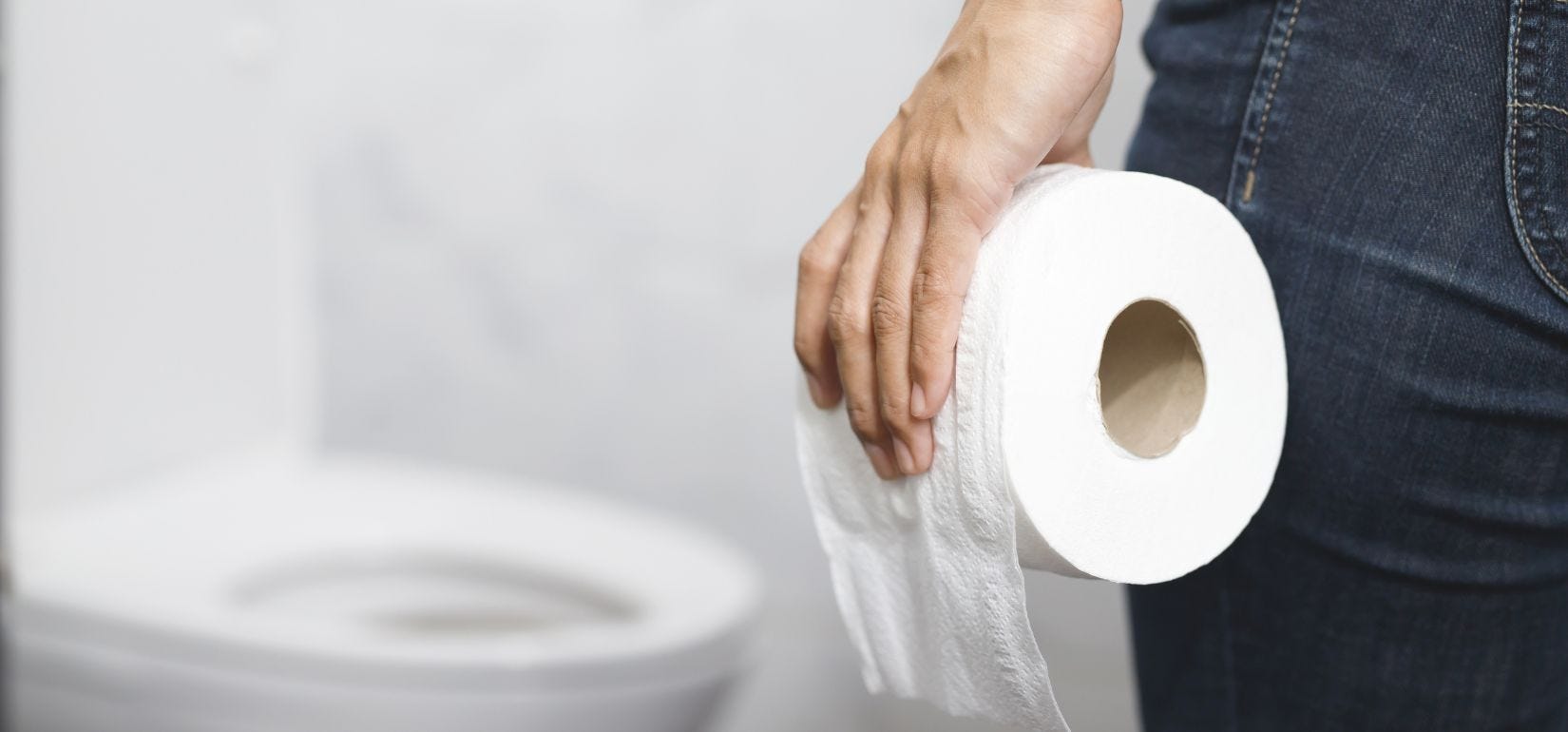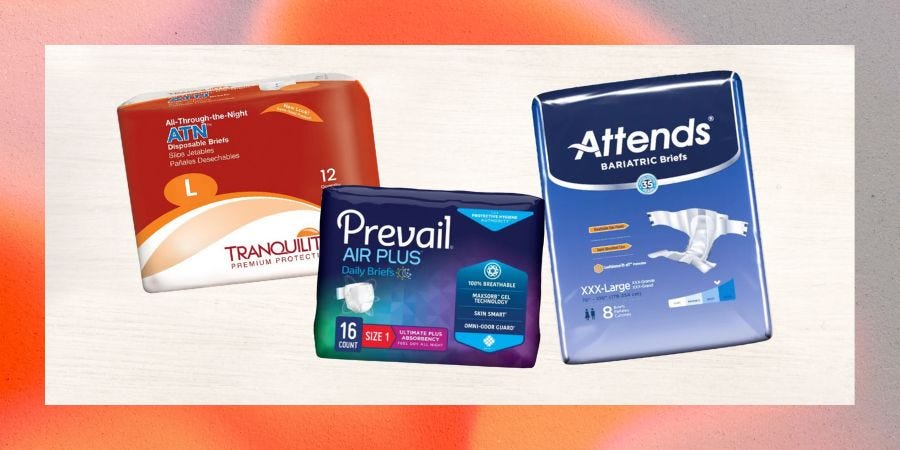Key Takeaways:
- Crohn’s disease is a lifelong condition that causes inflammation in the digestive tract.
- Some individuals may experience fecal or urinary incontinence as side effects of the condition.
- Lifestyle changes, like pelvic floor exercises, surgeries, and incontinence products, can help reduce incontinence symptoms.
Crohn’s disease causes uncomfortable and often painful symptoms like diarrhea and constipation, and can sometimes even cause issues in the bladder.
Find out how Crohn’s disease relates to incontinence and learn how to manage symptoms to regain quality of life.
INCONTINENCE PRODUCTS THROUGH INSURANCE:
Aeroflow Urology is in-network with many Medicaid and Medicaid-managed insurance plans and is accredited by Medicaid. Complete our Eligibility Form, and we’ll automatically check to see if your plan covers incontinence supplies. ***Must meet certain requirements to qualify.***
You will also receive the care and attention every person managing incontinence deserves: A personalized list of 100% insurance-covered incontinence supplies, a dedicated Continence Care Specialist you can contact during business hours, a user-friendly online portal for easy monthly reordering, and educational content.
Get the continence care you need with the dignity you deserve. Join the Aeroflow Urology family today! It only takes 5 minutes to get started.
What Is Crohn’s Disease?
Inflammatory bowel disease (IBD) is the overarching term for 2 conditions related to chronic inflammation of the gastrointestinal tract: Ulcerative colitis and Crohn’s disease.
Crohn’s disease affects more than half a million Americans. This lifelong condition causes inflammation throughout the digestive tract - most commonly the small intestine - resulting in uncomfortable and sometimes painful physical symptoms.
Ulcerative colitis only affects the large intestine.
Symptoms of Crohn’s Disease
Some individuals may present mild symptoms, while others may experience more severe side effects, some of which can be dangerous. Symptoms can come on suddenly or gradually, and can go into remission after a flareup. Symptoms may include:
- Fever
- Feeling tired or fatigue.
- Abdominal pain or cramping.
- Diarrhea
- Bloating or gas.
- Weight loss.
- Anemia
- Fistula
- Abscess
- Blockage in intestines.
- Bloody stool.
- Reduced appetite.
- Mouth ulcers.
- Fecal incontinence (loss of bowel control).
- Cystitis (inflammation of the bladder).
- Constipation
- Liver inflammation.
- Urinary tract infection (UTIs) or recurrent UTIs.
- Kidney stones.
- Arthritis
- Rashes
- Eye inflammation.
Causes of Crohn’s Disease
The cause of Crohn’s disease is not fully understood, but it’s thought to be related to an immune system issue called autoimmune disorder.
The immune system usually attacks harmful cells in the body to fight germs that harm us, causing short periods of inflammation. However, with autoimmune disorder, the immune system can’t tell the difference between healthy and foreign cells, causing the body to attack its own healthy tissues, leading to chronic inflammation.


Can Crohn’s Disease Cause Urinary or Fecal Incontinence?
Many people with Crohn’s disease may experience issues with the urinary tract or bowels.
Fecal Incontinence
Fecal incontinence is common among those with Crohn’s disease; it’s estimated that 7 out of 10 people with the condition experience it. With Crohn’s disease, 2 types of fecal incontinence can occur:
- Urge incontinence: Feeling an intense and sudden urge to pass a bowel movement, leading to leakage. Those with Crohn’s disease may experience urge incontinence due to diarrhea, muscle damage caused by fistulas in the rectum, or fistula surgery.
- Passive incontinence: Being unaware of the sensation of making a bowel movement, resulting in leakage. Those with Crohn’s disease may experience passive bowel incontinence after surgeries used to treat the condition.
Individuals with Crohn’s disease can experience fecal incontinence when symptoms are in remission or during flareups; during remission, 10% of people experience bowel incontinence and 66% experience urge incontinence.
Urinary Incontinence
Those with Crohn’s disease may indirectly experience 3 types of urinary incontinence due to direct symptoms of Crohn’s disease, like kidney stones and cystitis. One study showed that out of 328 patients with Crohn’s disease, cystitis was the most common urinary symptom, with 44 patients experiencing it.
- Urge incontinence: Feeling an intense and sudden urge to urinate leading to leakage. Those with Crohn’s disease might experience urge incontinence due to kidney stones and cystitis (overactive bladder). Certain medications that are used to treat Crohn’s disease can also cause urge incontinence or overactive bladder (OAB). Speak with your healthcare provider if you experience medication side effects.
- Stress incontinence: Leaking urine when laughing, coughing, sneezing, or exercising leading to leakage. Those with Crohn’s disease may experience stress incontinence from kidney stones. You may experience stress incontinence if you’ve undergone abdominal surgery for Crohn’s disease. Since these surgeries affect the abdomen, they in turn affect the pelvic floor, which can lead to stress incontinence.
- Overflow incontinence: Dribbling urine throughout the day or after emptying the bladder. People with Crohn’s disease may experience overflow incontinence from kidney stones.
Crohn’s disease can also cause recurrent UTIs that may cause urinary problems.
8 Ways to Manage Incontinence Caused by Crohn’s Disease
While there is currently no cure for Crohn’s disease, lifestyle changes can decrease incontinence symptoms.
- Dietary changes. Certain foods may cause constipation or irritation of the bowels during flare ups. Other foods may also cause bladder irritation and contribute to urinary incontinence. Avoid things like greasy or spicy foods, alcohol, and caffeine during these periods.
- Bladder diary or food diary. Using a bladder diary to track bowel movements or a food diary to track trigger foods may be helpful when working with a healthcare provider.
- Incontinence products. Many incontinence products, such as adult diapers and adult protective underwear are highly absorbent and even protect against overnight leaks. Those with Crohn’s disease and incontinence may qualify to receive free incontinence supplies through Medicaid or Medicaid-managed care plans with Aeroflow Urology.
Check Your Eligibility
2 Easy Steps
Discover the continence care essentials available through your Medicaid plan.
4. Bowel retraining. Bowel retraining consists of holding the bowels after the sudden urge to make a bowel movement comes on. The goal is to eventually be able to hold in bowel movements to reduce accidents. Speak with a healthcare provider about bowel retraining.
5. Biofeedback therapy. Biofeedback therapy can be performed by a healthcare provider and/or pelvic floor therapist. This therapy retrains the bowels to hold in fecal matter.
6. Medications. Certain medications, like anti-diarrhea medicines, may be helpful to reduce symptoms of Crohn’s disease, but it’s important to talk with a healthcare professional to avoid complications and risks that come with the medications.
7. Pelvic floor exercises. Pelvic floor exercises work the muscles of the pelvic floor that control the bladder and bowels. Men and women can incorporate these exercises to strengthen the muscles and regain bowel control.
8. Sacral neuromodulation surgery. This type of surgery, also known as sacral nerve stimulation, is used to treat urinary incontinence and can lessen symptoms of fecal incontinence, especially in those that have undergone Crohn’s disease surgeries and are experiencing unwanted urinary or fecal side effects.
While Crohn’s disease is a lifelong condition, there are many treatments available to lessen symptoms of inflammation and incontinence.
Jump To: Top | Eligibility Form
References
Definition & Facts for Crohn’s Disease | NIDDK. (n.d.). National Institute of Diabetes and Digestive and Kidney Diseases. https://www.niddk.nih.gov/health-information/digestive-diseases/crohns-disease/definition-facts#:~:text=Researchers%20estimate%20that%20more%20than
Mayo Clinic. (2022, August 6). Crohn’s Disease - Symptoms and Causes. Mayo Clinic; Mayo Clinic. https://www.mayoclinic.org/diseases-conditions/crohns-disease/symptoms-causes/syc-20353304
Bowel Incontinence and urgency. (n.d.). Crohnsandcolitis.org.uk. Retrieved January 18, 2024, from https://crohnsandcolitis.org.uk/info-support/information-about-crohns-and-colitis/all-information-about-crohns-and-colitis/symptoms/bowel-incontinence-and-urgency#:~:text=Bowel%20incontinence%20is%20more%20common
Kyle, J. (1980). Urinary complications of Crohn’s disease. World Journal of Surgery, 4(2), 153–160.https://doi.org/10.1007/BF02393564
Disclaimer
Information provided on the Aeroflow Urology blog is not intended as a substitute for medical advice or care from a healthcare professional. Aeroflow recommends consulting your healthcare provider if you are experiencing medical issues relating to incontinence.












